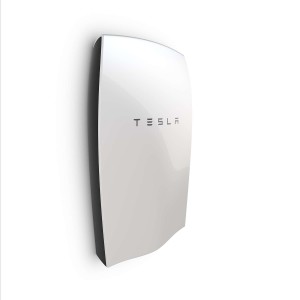It’s a question I’ve asked myself since Tesla made a splash with its “Powerwall” concept. It sounds super clean tech, after all: rooftop solar plus a battery feels like a 100% clean energy solution and a way to say goodbye to the utility.
But battery prices really aren’t low enough yet to be practical for this kind of use, and most solar PV arrays can’t generate enough power throughout the year to allow consumers to go completely off grid.
So we mostly hear about batteries as a backup option or for providing other grid services. Certainly batteries paired with solar (or standalone) can make a lot of sense for certain business customers, because they can get hit with incredibly high demand charges at certain times of the billing cycle. A battery that kicks in to supply power during those moments, rather than having the customer continue to draw power from the grid, can therefore save a lot of money.
But the same rates don’t apply to residential customers. Yes, homeowners typically face higher rates the more electricity they use in a billing cycle, but they don’t experience sudden huge charges, seemingly at random times. If they did, and they could program a battery to kick in during those moments, the cost of the battery would surely pencil over time.
Yet there are some exceptions. Residential customers with solar PV who live in states like Hawaii or Nevada with reduced rooftop solar incentives may need to get battery backups to enhance or rescue their solar PV investment. But even then, the economics probably don’t work so well.
And perhaps the biggest exception: those who want backup power in case of outages. If you live in an area prone to blackouts or in a remote area with fragile or even no access to the grid, or if even a single blackout would cause significant damage or disruption, backup power of some kind could make a lot of sense. Batteries could help meet that backup power need. But still: it’s so much cheaper and easier to simply get a diesel generator.
With this thought process in mind, I’ve largely dismissed the potential market for residential backup battery storage. So I was interested to read about a battery company representative who says his company makes most of its sales precisely on supplying backup power. Greentech Media reported on battery maker Sonnen, and a recent presentation from senior technical trainer Greg Smith:
This is an emotional sell, totally an emotional sell,” Smith said. “You get this system… [that’s] keeping your refrigerator on, so you get cold beer, you’ve got your phones that are charging so you’re connected to the world, and you can have lights. It’s a comforting thought.”
Lithium-ion batteries are relatively new for the home-use market, and concepts like self-consumption and time-of-use electricity rates are still confusing to a lot of people. Everybody understands the concept of backup power, however, and that use case tends to resonate with residential customers.
Sonnen took that and ran with it. The company website prominently displays the pitch “Never worry about the lights going out” as a reason to buy. It has discovered evocative and emotionally resonant case studies, like that of an elderly woman whose Sonnen battery kept her house powered when the rest of her neighborhood had gone dark. She invited everyone over to charge their phones and drink lemonade. That sense of safety and security doesn’t fit neatly into the ledgers.
But what about diesel generators as a cheaper alternative?
Lithium-ion can also do certain things the incumbents can’t. It’s got a smaller footprint, cleaner chemistry and longer cycle life than lead-acid batteries. And, unlike diesel generators, it doesn’t belch pollutants into the air and subject its owners to a clamorous din while operating.
More crucially, though, diesel generators still rely on diesel, and the kind of situations that knock out power for days on end also tend to shut down gas stations. Case in point: the nuclear reactors in Fukushima melted down not because of earthquake damage, but due to loss of power that shut off the reactor cooling mechanisms. The plant’s diesel generators failed to save the day because they were flooded by the tsunami, which also washed their diesel fuel tank out to sea. A diesel generator alone does not guarantee resilience.
It also can’t keep solar panels running. Customers who have batteries paired with rooftop solar installation enjoy an entirely different outlook. Grid-tied rooftop solar shuts down when the grid cuts out, but Sonnen’s home energy system isolates itself in a temporary microgrid. That allows the solar modules to recharge the battery each day, and it keeps the home operating at a 21st-century standard of living until grid power is restored.
It’s an interesting counter example of success in backup power, but in some ways it proves my point. Batteries still have to be an “emotional sell,” and there will necessarily be limits to the size of that kind of market, if the numbers aren’t there. As Greentech Media noted just a few days after running this story, the market may be as small as just 2 percent of customers, based on a recent survey.
Still, an emotional appeal can matter. And more importantly, as states around the country scale back rooftop solar incentives and as battery prices continue to drop, my guess is we’ll see this market grow from tiny to potentially quite lucrative.
And in the end, more energy storage like batteries, sprinkled around the grid, will help us meet our goals for a low-carbon electricity system, while saving customers money at the same time. We’re just not quite there yet.
Leave a Reply
You must be logged in to post a comment.



